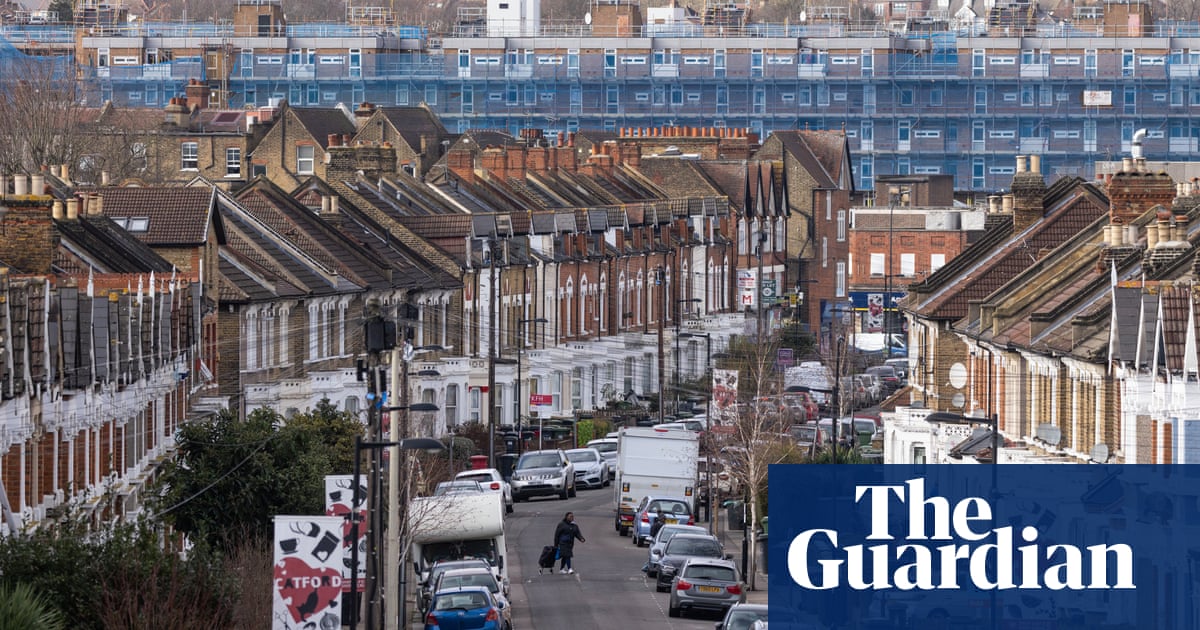
Soaring interest rates will cost UK mortgage holders £12bn in extra payments, according to a leading thinktank which said the impact will be felt mostly by young families.
In a report that emphasised the dramatic impact of higher borrowing costs, the Resolution Foundation said the Bank of England’s 12 consecutive rates rises since December 2021 had already cost homeowners £4.2bn, with about £8bn more in extra payments likely over the next couple of years.
More than 1.6 million homeowners are expected to re-finance the fixed rate loans this year, forcing them to pay an average £2,300 extra a year in interest payments.
In the first estimate of the overall cost, the foundation said 3.8m households have shifted to a higher mortgage rate since 2021, either because they were on a variable or tracker mortgage, or because they were one of the 35% of households with a fixed rate product that expired before March this year.
The remaining half – 3.7m households – had not seen their rate change up to March but most will need collectively to find an extra £5bn by next summer when their fixed rates expire.
Richer households with expensive houses and large loans will pay the bulk of the extra cost. “However, the scale of the living standards shock will be greatest for those low-and-middle income households who are affected,” the foundation said.
Repayments will increase by more than 4% of income for mortgage payers in the bottom 20% to 40% income group, compared with just 2% for those in the top 20%.
Earlier this week, the Bank of England’s monetary policy committee (MPC) hiked interest rates by 0.25 percentage points to 4.5% to quell an inflation rate that reached 10.1% in March.
Some analysts have argued that a combination of higher personal taxes and the higher mortgage rates will push the economy into recession later this year.
The economy narrowly avoided contracting in the first quarter of the year after data from the Office for National Statistics on Friday showed gross national product (GDP) grew by 0.1%.
However, the UK economy was at the bottom of the G7 growth league behind Germany, France and the US after an unexpected contraction of 0.3% in March.
It meant the UK economy was 0.5% smaller in the first three months of the year than it was in 2019 before the Covid-19 pandemic.
In contrast, the US economy is 5.3% larger than its pre-Covid size, France’s economy is 1.3% larger, and Germany is 0.1% smaller than in Q1 2019.
The slump in March was driven largely by weakness in the retail sector, with consumer spending squeezed by the cost of living crisis. The wet weather also dampened demand.
The sluggish start to the year was likely to concern the chancellor, Jeremy Hunt, who said the UK remained on course to be a “high-growth economy”.
after newsletter promotion
Analysts said the UK faced a difficult situation going into the summer, with millions of households finding that lower gas prices will be offset by higher income taxes and a rise in mortgage costs after a 12th consecutive interest rate rise by the Bank of England on Thursday.
Suren Thiru, the economics director at the Institute of Chartered Accountants in England and Wales, said the Bank’s decision to raise interest rates to 4.5% “may soon look like a misstep”.
He added: “The likely squeeze on consumer spending and investment from higher taxes, and the lagged impact of rising interest rates, may mean that our growth prospects are weaker than the Bank of England currently expects.”
Some analysts have predicted the economy will contract in the second quarter of the year, although the Bank said in its latest forecasts it was likely to avoid a downturn in every quarter of 2023.
The National Institute of Economic & Social Research said the UK economy could grow again in the second quarter of this year after a rebound in April from the slump in March.
Paula Bejarano Carbo, an economist at the forecasting group, said: “Encouragingly, the services, production, and construction sectors all saw quarter-on-quarter growth – a further sign that the economy as a whole is exhibiting more resilience than previously thought.”
Yael Selfin, chief economist at KPMG UK, said this still meant a long period of stagnation stretching into 2024.
“Although business sentiment continues to improve, bolstered in part by the fall in wholesale energy prices, we expect investment to be constrained this year amid the tightening in credit conditions and uncertainty about future policy direction,” she said.
Read More: World News | Entertainment News | Celeb News
Guardian








